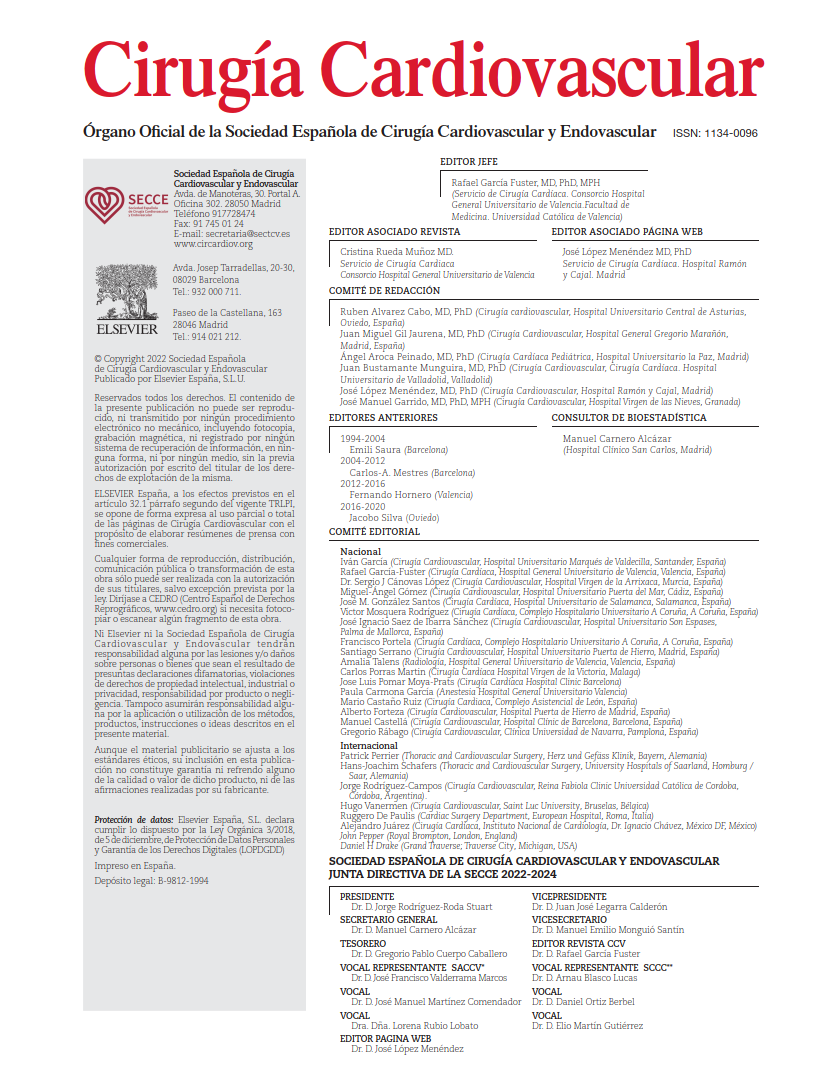
Three decades of anastomotic pseudoaneurysm repair: from open surgery to endovascular treatment, why not?
Thirty years of experience at a single center comparing open surgical repair and thoracic endovascular aortic repair (TEVAR) for anastomotic pseudoaneurysms following thoracic or thoracoabdominal aortic aneurysm surgery.
When donation after circulatory death changes the heart transplant waiting list
Observational cohort study analysing the impact of implementing a heart transplantation programme based on controlled donation after circulatory death on clinical outcomes from the time of inclusion on the waiting list.
How long should a patient wait for surgery after NSTEMI?
This study explores the impact of the time elapsed between coronary angiography and coronary artery bypass grafting (CABG) in patients presenting with non–ST-segment elevation myocardial infarction (NSTEMI).
Xenotransplantation in cardiac surgery: current status and future perspectives
This article provides an excellent overview of the historical development of cardiac xenotransplantation (transplantation using organs from other species) and clearly outlines the key concepts required to understand the current state of this technique.
Management of post-infarction ventricular septal defect: is early microaxial support the new turning point?
This single-center retrospective observational study evaluates the impact of an initial strategy based on microaxial flow support with Impella® devices, comparing percutaneous models (Impella 2.5®/CP®) with high-flow devices surgically implanted via the axillary approach (Impella 5.0®/5.5®), and their effect on clinical stabilization, access to delayed surgery, and early survival in patients with post-infarction ventricular septal defect (VSD).
Pediatric Cardiac Donation After Circulatory Death: When Technical Progress Forces Us to Redefine Death
Contemporary review of the different modalities of pediatric cardiac donation after circulatory death
Transcatheter valve repair and replacement: a critical perspective from the literature
This narrative review provides a deliberately cautious overview of the current landscape of transcatheter mitral interventions.
Dubious benefits of dual antiplatelet therapy after coronary surgery: new evidence in 2201 patients
A prospective randomized study including more than 2000 patients compared the outcomes of single antiplatelet therapy with aspirin versus dual antiplatelet therapy with aspirin and ticagrelor during the year following coronary artery bypass grafting (CABG) performed for acute coronary syndrome (ACS).

